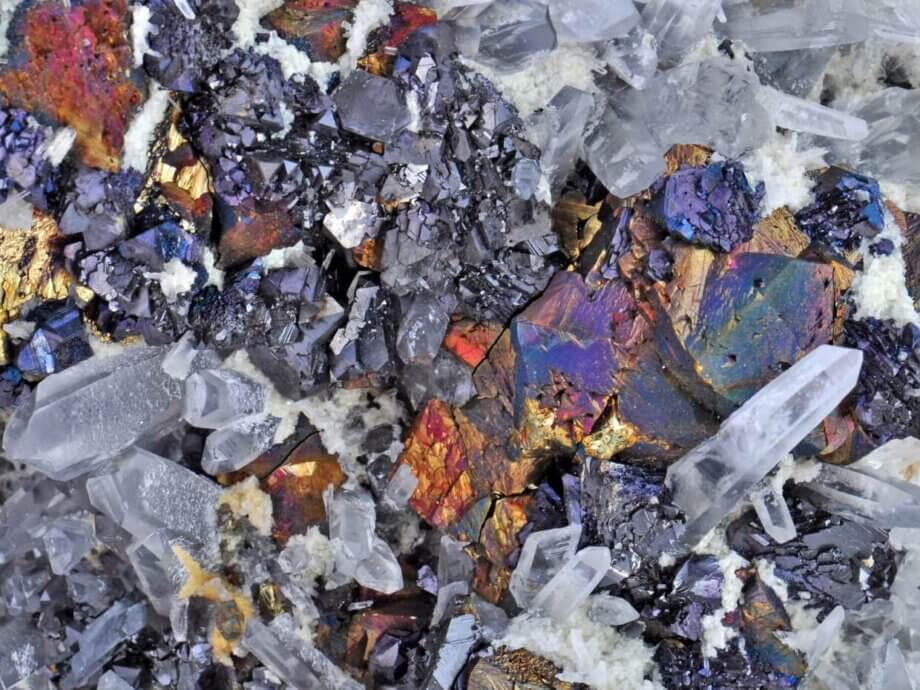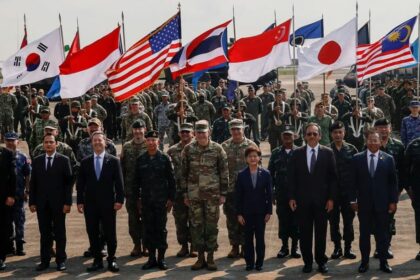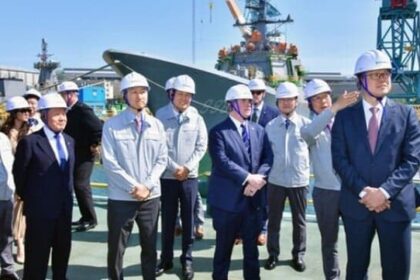Quad Nations Unite to Secure Critical Minerals: A Strategic Response to China’s Dominance
The United States, Japan, India, and Australia—collectively known as the Quad—have announced a major new initiative to secure and diversify the global supply of critical minerals. This move comes amid growing concerns over China’s overwhelming control of resources essential for clean energy, advanced technology, and defense industries. The Quad Critical Minerals Initiative, unveiled at a high-level ministerial meeting in Washington, marks a significant step in the group’s efforts to reduce strategic vulnerabilities and ensure economic security in the Indo-Pacific and beyond.
- Quad Nations Unite to Secure Critical Minerals: A Strategic Response to China’s Dominance
- Why Are Critical Minerals So Important?
- China’s Dominance and the Risks for Global Supply Chains
- The Quad’s Strategic Response: The Critical Minerals Initiative
- How Each Quad Member Contributes to the Initiative
- Challenges and Internal Frictions Within the Quad
- Building Resilient and Sustainable Supply Chains
- Engaging the Indo-Pacific and ASEAN: Beyond the Quad
- Obstacles to Success: Market Realities and Policy Uncertainties
- Opportunities for the Future: Toward a Resilient and Responsible Supply Chain
- In Summary
Critical minerals, such as lithium, cobalt, rare earth elements, and graphite, are the backbone of modern technologies. They power everything from electric vehicles and smartphones to missile systems and renewable energy infrastructure. However, the supply chains for these minerals are highly concentrated, with China dominating both production and processing. This concentration poses risks of economic coercion, price manipulation, and supply disruptions—risks that have become increasingly apparent as geopolitical tensions rise.
Why Are Critical Minerals So Important?
Critical minerals are not just commodities; they are strategic assets. Their unique properties make them indispensable for manufacturing semiconductors, batteries, wind turbines, and military hardware. For example, rare earth elements are essential for producing high-performance magnets used in electric vehicles and advanced weaponry. Lithium and cobalt are key components of rechargeable batteries, while graphite is crucial for battery anodes.
As the world accelerates its transition to clean energy and digital technologies, demand for these minerals is skyrocketing. The International Energy Agency projects that global demand for lithium could rise by 90% over the next two decades, while the need for rare earth elements and other critical minerals will also surge. This rapid growth has exposed the fragility of existing supply chains and the risks of overreliance on a single supplier.
China’s Dominance and the Risks for Global Supply Chains
China’s grip on the critical minerals market is formidable. The country controls approximately 85% of rare earth processing, 65% of nickel refining, and more than half of global lithium output. It also holds a near-monopoly on the production of graphite, a mineral vital for electric vehicle batteries. This dominance is not limited to mining; China also leads in refining and processing, giving it leverage over the entire supply chain.
Beijing has demonstrated its willingness to use this leverage as a tool of economic and geopolitical influence. In 2010, China halted rare earth exports to Japan during a diplomatic dispute, sending shockwaves through global markets. More recently, it has imposed export controls on graphite, gallium, and germanium—minerals critical for electronics and green technologies. These actions have heightened fears among other nations that China could weaponize its mineral dominance in future conflicts or trade disputes.
The Quad’s Strategic Response: The Critical Minerals Initiative
Recognizing the urgent need to address these vulnerabilities, the Quad nations have launched the Critical Minerals Initiative. The joint statement from the foreign ministers emphasized the importance of “diversified and reliable global supply chains” and warned that “reliance on any one country for processing and refining critical minerals exposes our industries to economic coercion, price manipulation, and supply chain disruptions.”
The initiative aims to:
- Secure and diversify supply chains for critical minerals
- Promote investment in mining, processing, and refining within Quad countries and trusted partners
- Facilitate technology sharing and joint ventures to build resilient supply networks
- Coordinate diplomatic and financial efforts to support responsible mining and environmental standards
While the statement did not mention China by name, the context was clear. The Quad’s move is a direct response to China’s market dominance and its use of critical minerals as a strategic tool.
How Each Quad Member Contributes to the Initiative
Each Quad nation brings unique strengths to the table, making the partnership well-suited to address the challenges of critical mineral security:
- Australia is a global leader in mining, producing 37% of the world’s lithium and holding vast reserves of rare earths, zinc, and other key minerals. It is a crucial supplier to its Quad partners and is investing heavily in expanding its mining and processing capacity.
- Japan excels in mineral processing and refining, with advanced technologies for extracting and recycling rare earth elements, lithium, cobalt, and nickel. Japan’s experience in building resilient supply chains after past disruptions makes it a valuable partner.
- The United States has a strong industrial base for manufacturing semiconductors, batteries, and defense systems. It is ramping up domestic mining and processing, supported by government initiatives and strategic investments in allied countries.
- India is rapidly expanding its capacity in mining and battery production, incentivizing private sector investment and seeking to leverage its growing manufacturing base. India’s inclusion of lithium, cobalt, and nickel in its official Critical Minerals List signals its long-term commitment to supply chain resilience.
By integrating their respective strengths, the Quad nations aim to build a secure, self-sufficient, and sustainable supply chain for critical minerals.
Challenges and Internal Frictions Within the Quad
Despite their shared goals, the Quad members face significant challenges in coordinating their efforts. Trade tensions, differing national priorities, and policy divergences have at times strained relations. For instance, the United States’ “America First” approach, characterized by aggressive tariffs and a preference for bilateral deals, has frustrated allies who favor multilateral cooperation and environmental standards.
Japan and Australia, for example, are committed to climate goals and sustainable mining practices, while the U.S. has sometimes prioritized speed and strategic leverage over environmental concerns. India, meanwhile, seeks to balance energy security with strategic autonomy, often preferring transactional reliability over ideological alignment.
Analysts warn that if the Quad devolves into a series of bilateral agreements rather than a cohesive multilateral framework, it could lose its collective leverage against China. As one expert noted, “A Quad that devolves into bilateral tracks will lose its collective leverage. Together, the group can shape pricing norms, co-develop resilient supply chains, and offer alternatives to China across Africa, Southeast Asia, and Latin America.”
Building Resilient and Sustainable Supply Chains
To “China-proof” their supply chains, the Quad nations are pursuing a two-pronged strategy:
- Strengthening intra-Quad cooperation by aligning national critical minerals lists, sharing technology, and coordinating investments in mining and processing infrastructure.
- Expanding partnerships with other countries—such as South Korea, Indonesia, Vietnam, Canada, and Chile—to diversify sources of supply and build a broader coalition for mineral security.
Financial mechanisms like the Quad Investors Network (QUIN) and government-backed funds in each country are being mobilized to reduce investment risks and accelerate project development. For example, the U.S. Department of Defense is supporting the establishment of rare earth processing facilities in Texas using Australian-mined materials, while India is investing in graphite processing plants in the United States.
Japan and Australia have signed multiple bilateral agreements to secure access to critical minerals, and all four Quad members participate in the U.S.-led Minerals Security Partnership (MSP), which aims to promote responsible mining and supply chain resilience globally.
Engaging the Indo-Pacific and ASEAN: Beyond the Quad
The Quad’s efforts are not limited to its four members. Recognizing the importance of regional cooperation, the group is engaging with the Association of Southeast Asian Nations (ASEAN) and other Indo-Pacific partners through frameworks like the Indo-Pacific Economic Framework (IPEF) and the MSP. These platforms facilitate technology transfer, investment in mining and processing, and the development of environmental and social governance (ESG) standards.
ASEAN countries, such as Indonesia and the Philippines, are significant producers of nickel and other critical minerals. Vietnam and Malaysia are major manufacturers of solar photovoltaic modules, while Thailand is a regional automotive hub. By collaborating with these countries, the Quad can help build vertically integrated supply chains for electric vehicles, renewable energy, and advanced manufacturing.
Obstacles to Success: Market Realities and Policy Uncertainties
Despite the ambitious goals, the Quad faces several obstacles in building a resilient critical minerals supply chain:
- Market volatility: Fluctuating prices for minerals like nickel and lithium can undermine investment and make projects economically unviable. For example, a crash in nickel prices forced major Western companies to cease operations, while Chinese-backed projects continued to expand.
- Policy uncertainty: Decentralized decision-making in Quad democracies can slow progress, as federal and provincial governments may have differing priorities. Environmental, social, and governance (ESG) standards also vary, complicating joint projects.
- Technological gaps: There is a need for greater expertise in next-generation battery technologies and advanced materials research. China has invested heavily in new battery chemistries, such as sodium-ion cells, which could disrupt existing supply chains.
- Risk of fragmentation: Without a unified framework, the Quad’s efforts could be undermined by competing national interests and bilateral deals, reducing their effectiveness in countering China’s dominance.
Opportunities for the Future: Toward a Resilient and Responsible Supply Chain
Despite these challenges, the Quad’s Critical Minerals Initiative represents a significant opportunity to reshape the global landscape for strategic resources. By pooling resources, sharing knowledge, and coordinating investments, the Quad can build a supply chain that is not only resilient but also responsible and sustainable.
Key recommendations for the Quad include:
- Developing a common definition and list of critical minerals to align strategic priorities
- Establishing an early warning system for supply chain disruptions
- Creating joint projects and co-investments in third countries to diversify sources
- Promoting research and development in recycling, material substitution, and efficient extraction technologies
- Ensuring that environmental and social standards are upheld across the supply chain
By taking these steps, the Quad can offer a credible alternative to China’s dominance, support the global transition to clean energy, and enhance the security and prosperity of the Indo-Pacific region.
In Summary
- The Quad (United States, Japan, India, Australia) has launched a Critical Minerals Initiative to secure and diversify supply chains for minerals essential to modern technology and defense.
- China currently dominates the production and processing of critical minerals, posing risks of economic coercion and supply disruptions.
- The Quad’s strategy includes strengthening intra-group cooperation, investing in mining and processing, and expanding partnerships with other countries.
- Internal challenges—such as trade tensions, policy differences, and market volatility—could hinder the effectiveness of the initiative.
- Engagement with ASEAN and other Indo-Pacific partners is crucial for building resilient, sustainable, and responsible supply chains.
- The success of the Quad’s efforts will depend on unified action, technological innovation, and adherence to high environmental and social standards.












